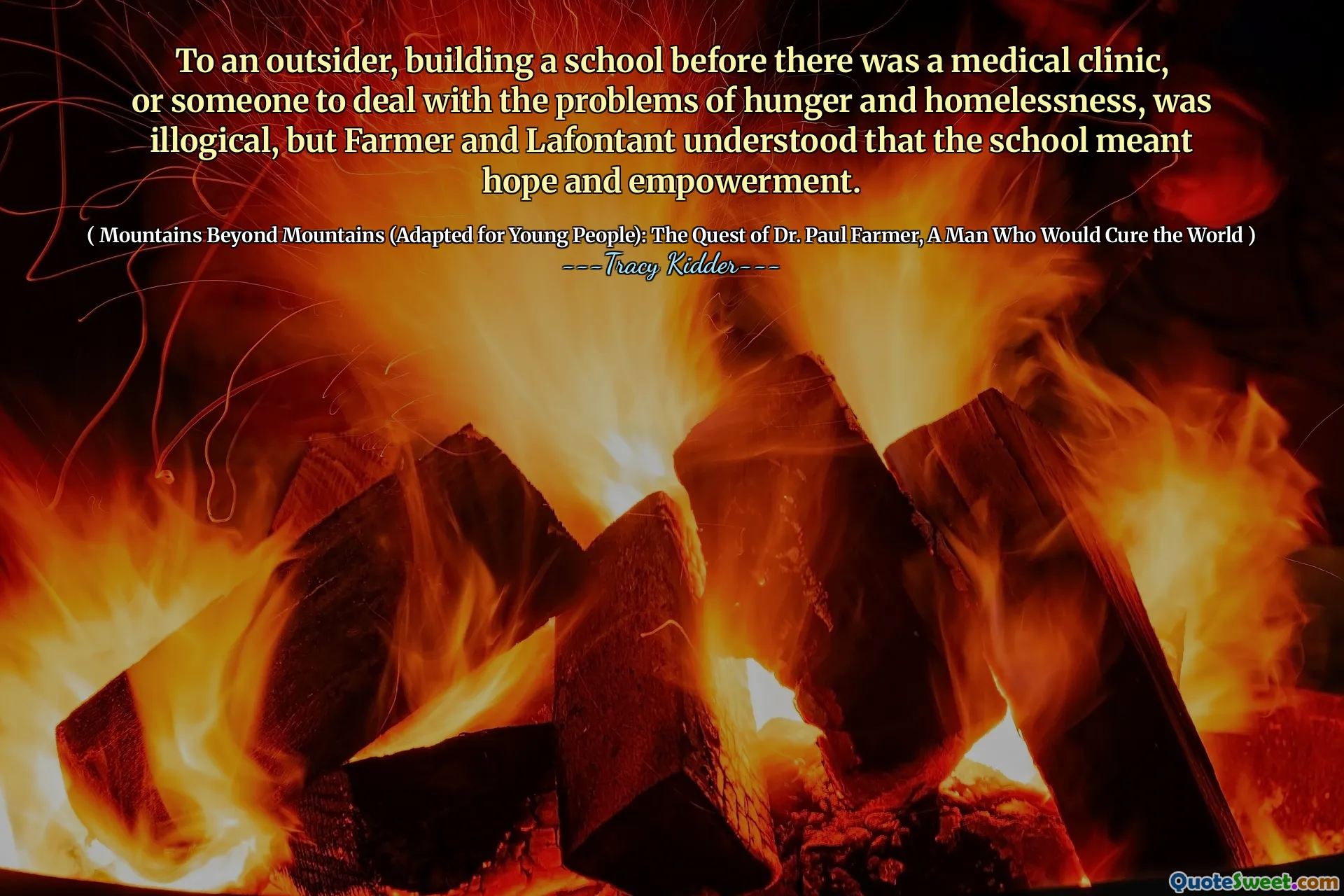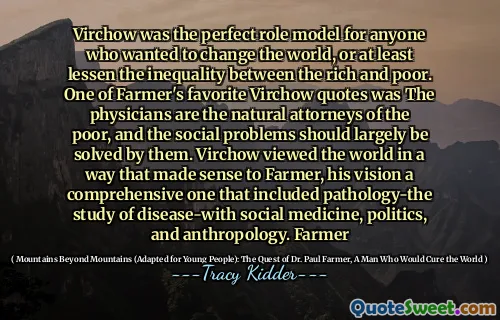
To an outsider, building a school before there was a medical clinic, or someone to deal with the problems of hunger and homelessness, was illogical, but Farmer and Lafontant understood that the school meant hope and empowerment.
In Tracy Kidder's book, "Mountains Beyond Mountains," the narrative centers around Dr. Paul Farmer's mission to address health and social issues in impoverished communities. The decision to build a school before establishing a medical clinic or addressing hunger may appear irrational to outsiders. However, Farmer and his colleague Lafontant recognized that education plays a crucial role in fostering hope and empowerment among the community members. They understood that investing in a school could bring about long-term change and development.
This focus on education underscores a holistic approach to solving complex social problems. Rather than merely addressing immediate health concerns, Farmer's vision involved uplifting the community through education, which would, in turn, create a foundation for tackling issues like malnutrition and inadequate healthcare. The act of building a school symbolizes a commitment to a brighter future, highlighting the belief that with hope, individuals and communities can overcome significant challenges.











